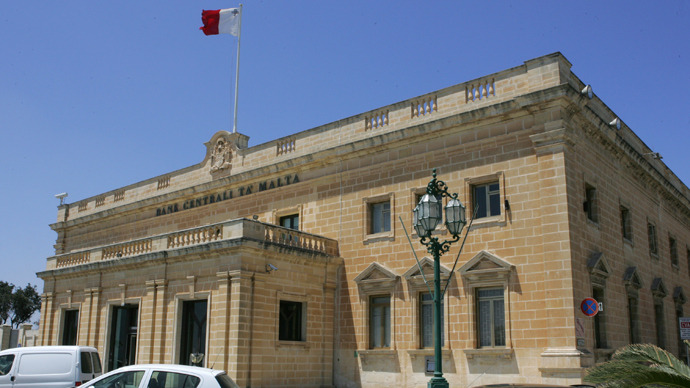Malta's banking sector 'robust and stable'

As the Cyprus crisis unravels, comparisons are being made with other European tax havens, such as Malta and Luxembourg. Like Cyprus, these are small countries with large banking sectors and fears are high they could be next up for a crisis.
Malta has dismissed comparisons with Cyprus and sends a very strong message that other than both being islands and members of the European Union and the eurozone, there is no similarity between the two. The countries indeed have a number of key differences, explains Nestor Laiviera, a journalist working for Malta Today newspaper.
“Yes, Malta’s banking sector is disproportionally large to
our GDP, but our domestic banking sector is however below European
average. So in that respect it’s not as oversized as Cyprus’s. We
must also keep in mind the Cypriot banking sector’s very
significant overexposure to the Greek economy which obviously
undermined the Cypriot banking sector when Cyprus itself requested
the bailout because of the financial difficulties. Malta’s banking
sector doesn’t have that kind of exposure to foreign markets.
Additionaly Malta’s banking sector was also rated by the World
Economic Forum as 13th strongest when it comes to robustness, out
of 144 countries. So our banking sector is reputed to be very
strong and there is no concern that it will follow the suit and
fall exposed to the Cyprus crisis.”
The Maltese government has declared that the island's banking
sector, which is eight times the size of the island's gross
domestic product, remains "robust and stable" in the wake of fresh
doubts. However Maltese officials have been very cautious about the
Cypriot bailout package and now monitor the situation very closely
so the island doesn’t get caught by surprise if the storm
begins.
“The official position is that contagion is not expected to
spread because of the stability of our financial sector. However
all eyes are on Cyprus to see how the situation develops. And the
feed we are getting from the media is that nobody is
underestimating the situation.”
The smaller EU member states seem to be getting rougher treatment
than larger economies. The Cypriot President, Nicos Anastasiades
said the European Union was "experimenting" with his country.
Should Malta be worried about being treated harshly if crisis
erupts?
“It’s true the Cypriot bailout deal was unprecedented and
Cypriots in my opinion are justified in their feelings of being
pressured,” Nestor Laiviera says. “But one must keep in mind the
Cypriot issue is a relatively unique one. While we’ve seen a bank
levy applied on Cypriot bank deposit holders, it’s considered that
it was a trailed measure in resolving Cyprus’ particular issue. So
it’s unlikely this particular measure will spread to other EU
member states.”
The European Union and the International Monetary Fund, too are
insisting Cyprus is a unique case. However many argue about EU’s
selective approach when dealing with different troubled members of
the Eurozone, though it may be favorable for Malta not to be
treated to the same scenario with a deposit tax on savers, should
financial crisis hit.
“The Cypriot bailout has shown that the EU is becoming
increasingly inclined towards devising tailor-made solutions for
each member state instead of applying a one-size-fits-all approach,
so if and when Malta runs in trouble, which so far seems unlikely,
analysts expect that the EU will push for measures that will serve
specific problems when these arise,” Nestor Laiviera told
RT.












